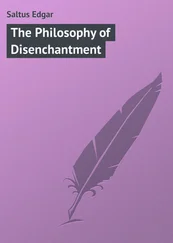Edgar Saltus - Eden - An Episode
Здесь есть возможность читать онлайн «Edgar Saltus - Eden - An Episode» — ознакомительный отрывок электронной книги совершенно бесплатно, а после прочтения отрывка купить полную версию. В некоторых случаях можно слушать аудио, скачать через торрент в формате fb2 и присутствует краткое содержание. Жанр: foreign_prose, на английском языке. Описание произведения, (предисловие) а так же отзывы посетителей доступны на портале библиотеки ЛибКат.
- Название:Eden: An Episode
- Автор:
- Жанр:
- Год:неизвестен
- ISBN:нет данных
- Рейтинг книги:4 / 5. Голосов: 1
-
Избранное:Добавить в избранное
- Отзывы:
-
Ваша оценка:
- 80
- 1
- 2
- 3
- 4
- 5
Eden: An Episode: краткое содержание, описание и аннотация
Предлагаем к чтению аннотацию, описание, краткое содержание или предисловие (зависит от того, что написал сам автор книги «Eden: An Episode»). Если вы не нашли необходимую информацию о книге — напишите в комментариях, мы постараемся отыскать её.
Eden: An Episode — читать онлайн ознакомительный отрывок
Ниже представлен текст книги, разбитый по страницам. Система сохранения места последней прочитанной страницы, позволяет с удобством читать онлайн бесплатно книгу «Eden: An Episode», без необходимости каждый раз заново искать на чём Вы остановились. Поставьте закладку, и сможете в любой момент перейти на страницу, на которой закончили чтение.
Интервал:
Закладка:
Meanwhile her education had been completed by Shakspere. Love she had learned of Juliet, jealousy of Othello. But of despair Hamlet had been incompetent to teach. She was instinct with generous indignations, enthusiastic of great deeds, and through the quality of her temperament unable to reason herself into an understanding of the base. When she "came out" she found herself unable to share the excited interest which girls of her age exhibited in Delmonico balls. At the dinners and dances to which she was bidden, she was chilled at the discovery that platitude reigned. As a rule, the younger men fought shy of her. She acquired the reputation of making disquieting answers and remarks of curious inappositeness. But now and then she met people that found her singularly attractive and whose hearts went out to her at once, yet these were always people with whom she fancied herself in sympathetic rapport.
Among this class was a man who succeeded Amadis. His name was Dugald Maule; he was six or seven years her senior, and by profession an attorney and counsellor-at-law. It should be noted, however, that he did not look like one. He looked like an athlete that had taken honors, a man to be admired by women and respected by men. In private theatricals he was much applauded. He had studied law in the hope of being judge, and in being judge of pronouncing the death sentence. He could imagine no superber rôle than that. To him, after months of self-examination, Eden Menemon surrendered her heart. The surrender was indeed difficult, but as surrenders go it was complete.
The threads by which he succeeded in attaching her to him it is unnecessary to describe. Suffice it to say that little by little she grew to believe that in him the impeccable resided. She had accustomed herself to consider love in the light of a plant which if rightly tended would bloom into a witherless rose. She had told him this, and together they had watched the bud expand, and when at last it was fulfilled to the tips he saw it in her eyes. That evening, when he had gone, the sense of happiness was so acute that she became quasi-hysterical. The joy of love, slowly intercepted and then wholly revealed, vibrated through the chords of her being, overwhelming her with the force of an unexperienced emotion, and throwing her for relief into a paroxysm of tears. Then followed a day of wonder, in which hallucinations of delight alternated with tremors of self-depreciation. It seemed to her that she was unworthy of such an one as he. For, to her, in her inexperience, he was perfection indeed, one unsulliable and mailed in right. And then, abruptly, as such things occur, without so much as a monition, she read in public print that he had been summoned as a co-respondent. To overwrought nerves as were hers, the announcement was rapider in its effect than a microbe. A fever came that was obliterating as the morrow of steps on the sand. For a week she was delirious, and when at last she left her room the expression of her face had altered. She felt no anger, only an immense distrust of the validity of her intuitions. Had Dugald Maule been in trouble, she would have, if need were, forsaken life for his sake; but the Dugald Maule for whom she would have been brave had existed only in her own imagination. It was this that brought the fever, and when the fever went, disgust came in its place. It was then that the expression of face altered. She looked like one who is done with love. Presently, and while she was still convalescent, her father sent her abroad with friends, and when she returned, Dugald Maule had to her the reality of a bad dream, a nightmare that she might have experienced in the broad light of an earlier day.
In the course of that winter it so happened that her father one evening brought in to dinner a man whom he introduced as Mr. Usselex. Eden had never seen him before and for the moment she did not experience any notable desire to see him again. She attended, however, with becoming grace to the duties of hostess, and as the conversation between her father and his guest circled in and over stocks, she was not called upon to contribute to the entertainment. When coffee was served she went to her own room and promptly forgot that Mr. Usselex existed.
But in a few days there was Crispin again. On this occasion Eden gave him a larger share of attention than she had previously accorded. There were certain things that she noticed, there was an atmosphere about him which differed from that which other men exhaled. In the tones of his voice were evocations of fancies. He seemed like one who had battled and had won. There was an unusualness in him which impressed and irritated her simultaneously. It was annoying to her that he should intrude, however transiently, into the precincts of her thought. And when he had gone she took her father to task: "What do you have that man to dinner for?" she asked. "Who is he?"
Mr. Menemon, who was looking out of the window, announced that it was snowing, then he turned to her. "Eden," he said, "I am sorry. If you object he need not come again. Really," he continued, after a moment, "I wish you could see your way to being civil to him."
"Surely I am that," she answered.
To this Mr. Menemon assented. "The matter is this," he said. "While you were abroad I became interested in a mine; he is trying to get me out of it. He is something of a prophet, I take it. Though, as yet," he added despondently, "his prophecies have not been realized."
"Then he is a philosopher," said Eden, with a smile; and her father, smiling too, turned again to interview the night.
Thereafter Mr. Usselex was a frequent guest, and presently Eden discovered that her annoyance had disappeared.
The people whom we admire at first sight are rarely capable of prolonging that admiration, and when circumstances bring us into contact with those that have seemed antipathetic, it not infrequently happens that the antipathy is lost. It was much this way with Eden. Little by little, through channels unperceived, the early distaste departed. Hitherto the world had held for her but one class of individuals, the people whom she liked. All others belonged to the landscape. But this guest of her father's suggested a new category; he aroused her curiosity. He left the landscape; he became a blur on it, but a blur on which she strained her eyes. The antipathy departed, and she discovered herself taking pleasure in the speech of one who had originally affected her as a scarabæus must affect the rose.
Читать дальшеИнтервал:
Закладка:
Похожие книги на «Eden: An Episode»
Представляем Вашему вниманию похожие книги на «Eden: An Episode» списком для выбора. Мы отобрали схожую по названию и смыслу литературу в надежде предоставить читателям больше вариантов отыскать новые, интересные, ещё непрочитанные произведения.
Обсуждение, отзывы о книге «Eden: An Episode» и просто собственные мнения читателей. Оставьте ваши комментарии, напишите, что Вы думаете о произведении, его смысле или главных героях. Укажите что конкретно понравилось, а что нет, и почему Вы так считаете.












